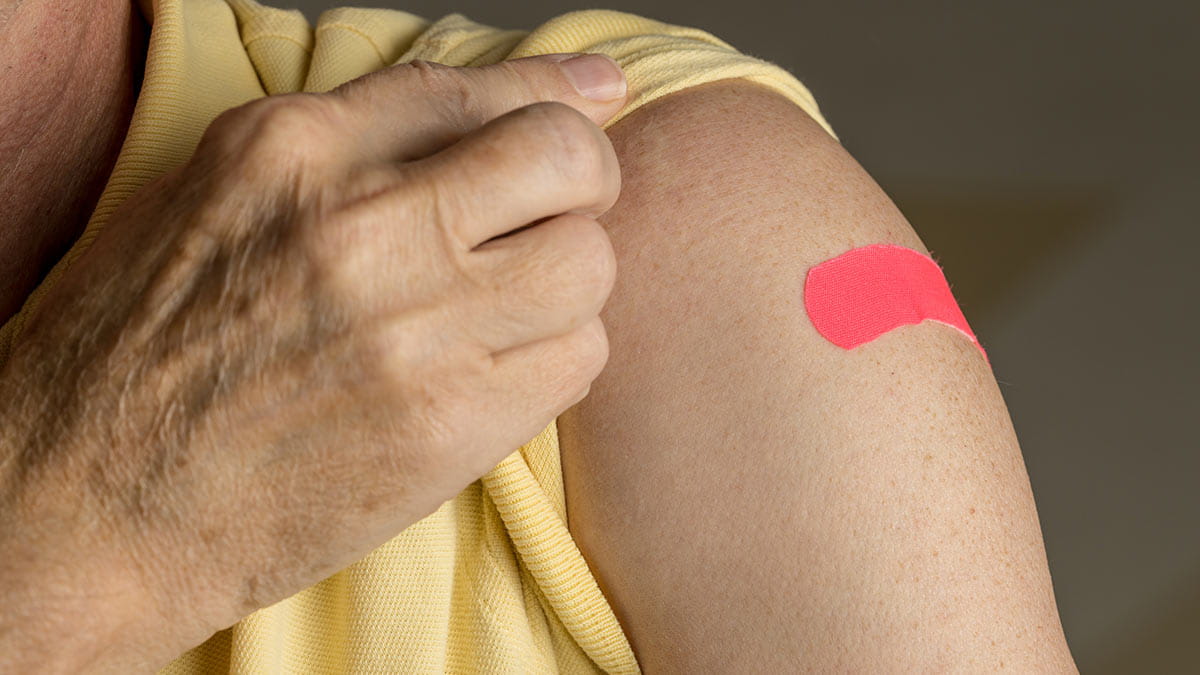How to know a food allergy has been outgrown

Being diagnosed with a food allergy – or having your child diagnosed with a food allergy – might feel like a jail sentence.
It can be exhausting to have to scour ingredients lists, find modified recipes and worry about accidentally ingesting the wrong food.
The good news: Some food allergies fade away, with many children managing to outgrow those allergies before they leave kindergarten. And if you’re a food-allergy sufferer worried about passing it down to your children, we now know there are ways to prevent food allergies from developing.
How can we tell?
If an allergist like me once diagnosed you with a food allergy and you suspect you’ve outgrown it, we would perform two tests: a skin-prick test and a blood test.
If the results tell us that you could have outgrown that allergy, we’ll start a “food challenge.”
Say you were diagnosed with an egg allergy. During a food challenge, you’ll come to the clinic and eat a tiny piece of egg while we carefully monitor your body’s reaction. After some time, you’ll try a larger piece of egg. If you don’t have an allergic reaction, the process will be repeated until you eat what’s considered a full serving.
A food challenge can take several hours. If you reach the milestone of eating an entire serving with no reactions, we can safely say that you’ve outgrown that allergy.
Which allergies are likely to be outgrown?
Eight foods make up more than 90 percent of all food allergies: egg, milk, wheat, soy, peanuts, tree nuts, fish and shellfish.
Egg, milk, soy and wheat allergies are the ones we usually see being outgrown.
About 80 percent of people with egg, milk and wheat allergies outgrow them, usually by age 16.
About 20 to 25 percent of children with peanut allergies outgrow them, and about 80 percent who outgrow them will do so by age 8.
Allergies to tree nuts, fish and shellfish may be tougher to outgrow and are often lifelong.
You can’t control whether you outgrow allergies
Science hasn’t yet taught us a definitive way to speed up the process of outgrowing a food allergy once the allergy is present.
Because we can’t change how or when these allergies are outgrown, it’s best to prevent their development in the first place.
How to prevent food allergies
For a long time, doctors told parents to avoid giving their babies milk, eggs, nuts and fish until the children had reached certain ages. We wanted to allow the immune system to fully develop first, hoping to avoid the development of allergies to those foods.
But a recent, landmark study revealed that the immune system actually needs to see those foods earlier in life.
Researchers studied infants who, based on genetics and other risk factors, were determined at risk of developing peanut allergies. Half of the children were fed peanuts early in life, and half avoided peanuts. The kids who weren’t exposed to peanuts early in life were significantly more likely to develop an allergy to peanuts by age 5.
This research helped us conclude that our bodies need to develop tolerances so that they don’t skew toward allergy.
The American Academy of Allergy, Asthma & Immunology now recommends introducing egg, dairy, peanut, tree nuts, fish and shellfish gradually into a baby’s diet between four and six months, if the baby tolerated less allergenic foods. They also suggest breastfeeding without removing specific allergens from mom’s diet, if the baby is otherwise healthy.
Your pediatrician can recommend the best course of introduction, especially if someone else in the family has a peanut allergy. An allergist can help if you see allergic reactions, such as eczema.
Know your enemy: allergies vs. intolerances
Some people think they have allergies when they’re actually intolerances. Only about 6 to 9 percent of children and 2 to 3 percent of adults have food allergies, but intolerances are common.
Allergies cause specific symptoms: itching, hives, swelling, shortness of breath, vomiting and/or anaphylaxis.
Food intolerance typically causes upset stomach, irritable bowel, abdominal pain, bloating, cramping, diarrhea or headache.
The treatment for a food allergy is strictly to avoid that food and carry an EpiPen in case you’re unexpectedly exposed to it.
You may treat food intolerance by avoiding the food, too. But a small amount of the food that interacts poorly with your body won’t kill you, though it may make you feel sick. With an allergy, the food could cause life-threatening reactions, so it should be strictly avoided with the guidance of your allergist.
Kara Wada, MD, is an allergist and immunologist at The Ohio State University Wexner Medical Center and an assistant professor of medicine at The Ohio State University College of Medicine.




